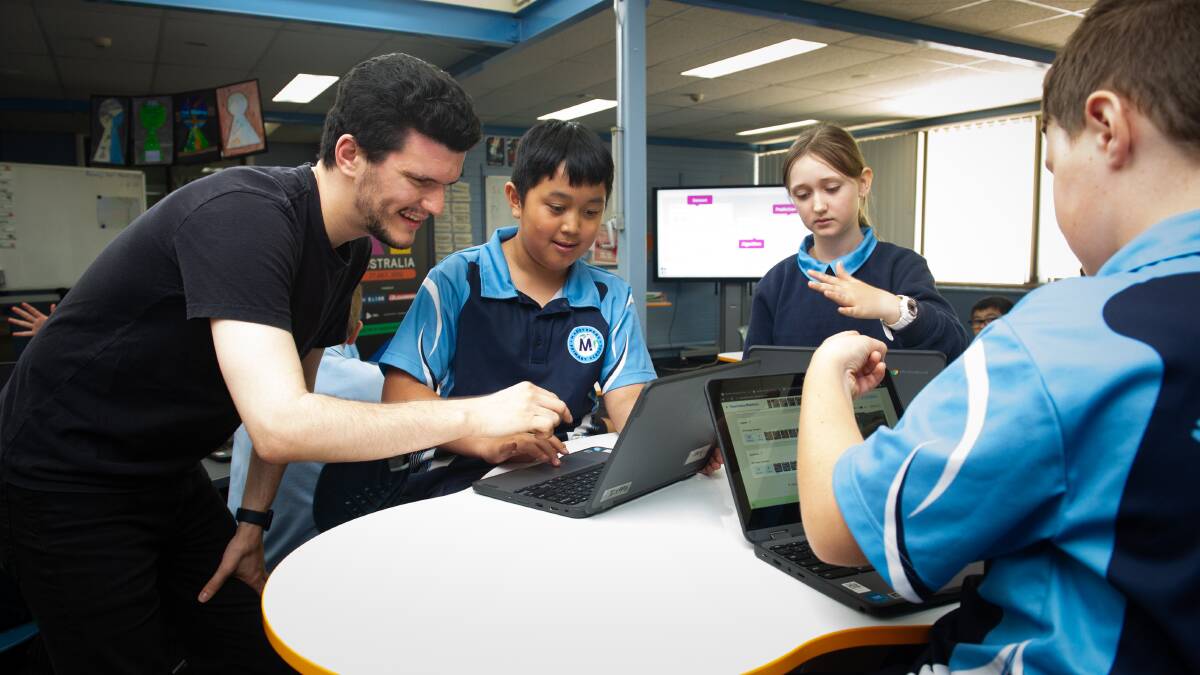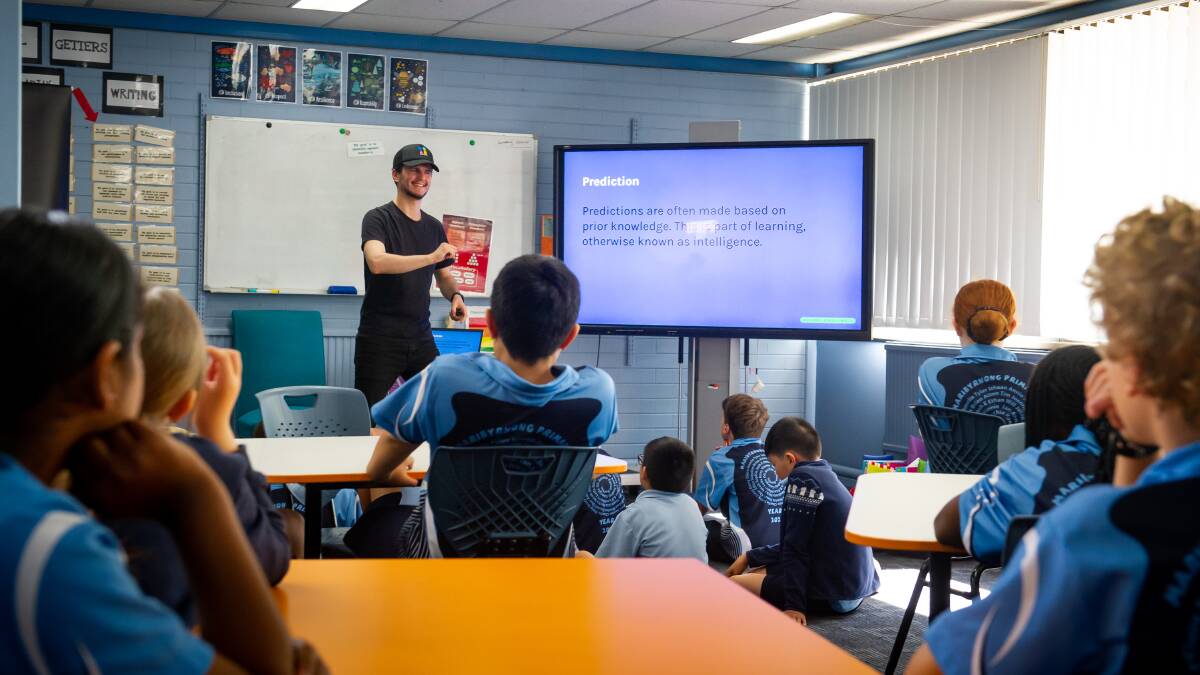Students at Maribyrnong Primary School may not grow up to be computer scientists, but every single child will be using artificial intelligence in their future careers.
Subscribe now for unlimited access.
$0/
(min cost $0)
or signup to continue reading
Year six students at the Canberra school will be participating in the International Day of AI in May to help demystify the concepts behind the revolutionary technology.
Year 5/6 executive teacher and digital learning coach Emily Van Galen said the school was proud of the digital resources it had built up and aimed to get experts in to expose them to different technologies.
"We're futureproofing the kids really. The jobs that we're teaching them for today may not exist currently because of the evolution of technology and the way that has progressed so significantly," Ms Van Galen said.
"We really want to make sure we're giving them exposure to different areas so then they have the head start ... for what they want to learn in high school and also for a job in real life."
The rise of generative artificial intelligence with the launch of ChatGPT had rocked every sector, including education.
CS in Schools co-founder and former Google executive Hugh Williams said every student would need to have a grasp of the underpinning concepts of artificial intelligence.
"Regardless of whether you become a mechanic or whether you become a lawyer, or an accountant or a doctor ... you're going to find that AI plays an enormous role in doing what you do," Dr Williams said.

ChatGPT allows users to ask a program virtually any question and get a coherent, even creative, response in seconds.
Most Australian public schools have put a blanket ban on using ChatGPT on school devices over fears students will use it to write their assessments.
The ACT Education Directorate has blocked access to ChatGPT on the student network and school-issued Chromebooks because the age limit in the terms of use is 18 plus.
"We also take a pragmatic approach and understand that students can and will access technology on devices and networks not provided by the directorate," a spokesman said.
"With this in mind, we work with our students on appropriate and ethical use of technology and remind them of the importance of submitting their own work. We have always held this position with regard to plagiarism in particular, and as AI technology evolves the position remains an ongoing focus."
READ MORE:
Dr Williams said he hoped schools would find a way to integrate the technology positively in the classroom.
"I'm hoping personally that's a sort of block while we spend time thinking about it and regroup and then figure out how to give the right advice to school leaders and teachers about how to use it productively in the classroom and not something that will be permanent."
Teachers could use artificial intelligence to write first drafts of lesson plans, analyse student work and take the drudgery out of marking so they can spend time on more meaningful work.
"A lot of teachers spend their Sunday evenings with their laptop on their knees, on the sofa with a TV show on in the background doing research for the week ... I would imagine that a good percentage of the early adopter teachers are now using ChatGPT to help them with that," Dr Williams said.

The International Day of AI started four years ago at MIT and has grown into a global movement.
The Day of AI in Australia was held for the first time last year, with 23,000 high school students across 200 schools taking part.
This year the interest is even higher, with 30,000 year 5 to 10 students across 170 students already on board.
Teachers get free access to resources for the May 18 event and students can enter competitions to win prizes, including visits and internships with Australian technology companies.
Day of AI facilitator Zach Wingrave spent spent time teaching Maribyrnong Primary students about the theory behind facial recognition software last week.
"We're talking about data sets, we're talking about learning algorithms, training AI to make predictions about things," Mr Wingrave said.
"We're really sowing the seeds down for a future understanding for these complex technologies."
We've made it a whole lot easier for you to have your say. Our new comment platform requires only one log-in to access articles and to join the discussion on The Canberra Times website. Find out how to register so you can enjoy civil, friendly and engaging discussions. See our moderation policy here.


